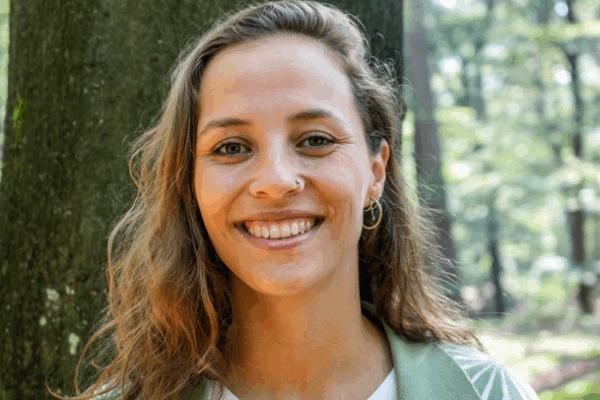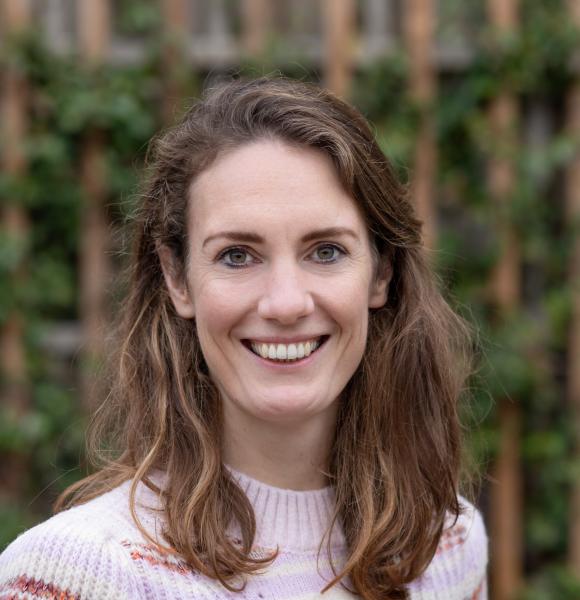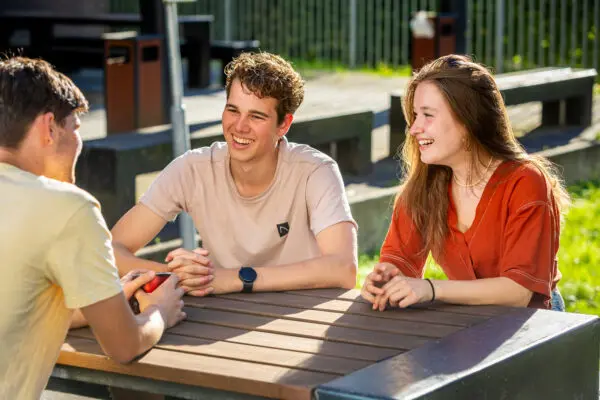Er zijn meer mannen nodig in het onderwijs: feit of fabel?
In de serie Feiten & Fabels duiken we dieper in de vooroordelen over het onderwijs. Kloppen die eigenlijk wel? In deze aflevering: Er zijn meer mannen nodig in het onderwijs.

Bij de Marnix Academie staan we niet stil. Onze organisatie is volop in ontwikkeling. Hier lees je de laatste updates en inspirerende verhalen van onze studenten en medewerkers.


In de serie Feiten & Fabels duiken we dieper in de vooroordelen over het onderwijs. Kloppen die eigenlijk wel? In deze aflevering: Er zijn meer mannen nodig in het onderwijs.

In de serie Feiten & Fabels duiken we dieper in de vooroordelen over het onderwijs. Kloppen die eigenlijk wel? In deze aflevering: Als leraar verdien je weinig.

Je mag weer water drinken uit de kraan!

De pabo van de Marnix Academie staat met 74 punten boven aan de ranglijst van pabo’s in Midden- en Oost-Nederland in de Keuzegids HBO 2026 die op 2 oktober 2025 is verschenen.

Roos van der Linden, leerkracht van het jaar én oud-student van de Marnix Academie Utrecht, was gastspreker in onze Straffe Koffie-sessie. Deze interne, online sessies organiseren we driemaal per jaar, om de dialoog over inclusie te stimuleren tussen studenten en medewerkers van de Marnix Academie en haar partnerschap. Astrid Venes (Venes,Astrid A.M.M.), voorzitter CvB, heette de deelnemers welkom en benadrukte het belang van dialoog in het samen werken aan inclusie. En natuurlijk zei ze: “We zijn vereerd dat Roos de inleiding verzorgt vandaag!”

Wat vliegt de tijd… De zomervakantie staat voor de deur en met het afronden van dit studiejaar neem ik ook graag een moment om stil te staan bij meer dan vier jaar lectoraat Samen opleiden en Professionaliseren in de vorm van een terugblik in cijfers. Wat hebben we enorm veel bereikt en gedaan. Strik erom en op naar nog meer mooie opbrengsten!

Eva Kuijpers werkt samen met collega's en andere organisaties in het project Tools voor Onderwijs in Sociaal Ondernemerschap. Lees nu het interview met Eva Kuijpers over de ontwikkeling van de toolkit voor Onderwijs in Sociaal Ondernemerschap

Sinds een paar maanden ben ik betrokken bij twee grote projecten die draaien rondom interprofessioneel samenwerken in de context van het onderwijs. Interprofessioneel samenwerken kan plaatsvinden binnen de muren van de school, tussen onderwijsprofessionals, maar kan ook de grenzen van het onderwijs overstijgen, zoals samenwerking met zorg, welzijn of jeugdwerk in de wijk. De professional van vandaag en morgen heeft niet alleen een stevige vakinhoudelijke basis nodig, maar moet óók goed kunnen samenwerken binnen én buiten de eigen discipline. Hoe interprofessioneel bén jij?

Met trots delen we de positieve onderzoeksresultaten van de HBO-monitor 2024 en de Nationale Studenten Enquête (NSE) 2025. Deze cijfers onderstrepen het vertrouwen in en de waardering van onze studenten en alumni.

Stagelopen in het buitenland biedt een mooie mogelijkheid voor toekomstige leerkrachten om zich te ontwikkelen. Noa Stolwijk, tweedejaars student van de driejarige pabo aan de Marnix Academie, is een van de eerste driejarige pabo- studenten die naar het buitenland is gegaan voor stage. In dit artikel deelt ze haar ervaringen die ze heeft opgedaan tijdens haar 10 weken durende stage in Suriname.

Bij het horen van het woord ‘leeruitkomsten’ zou je kunnen denken: alweer een nieuwe onderwijsontwikkeling? Nou, ja en nee. Het concept is niet nieuw, maar het krijgt de laatste jaren steeds meer aandacht, vooral binnen het hoger onderwijs. Ook in lerarenopleidingen wordt er inmiddels volop mee gewerkt, en ik ben daar intensief bij betrokken geweest.
